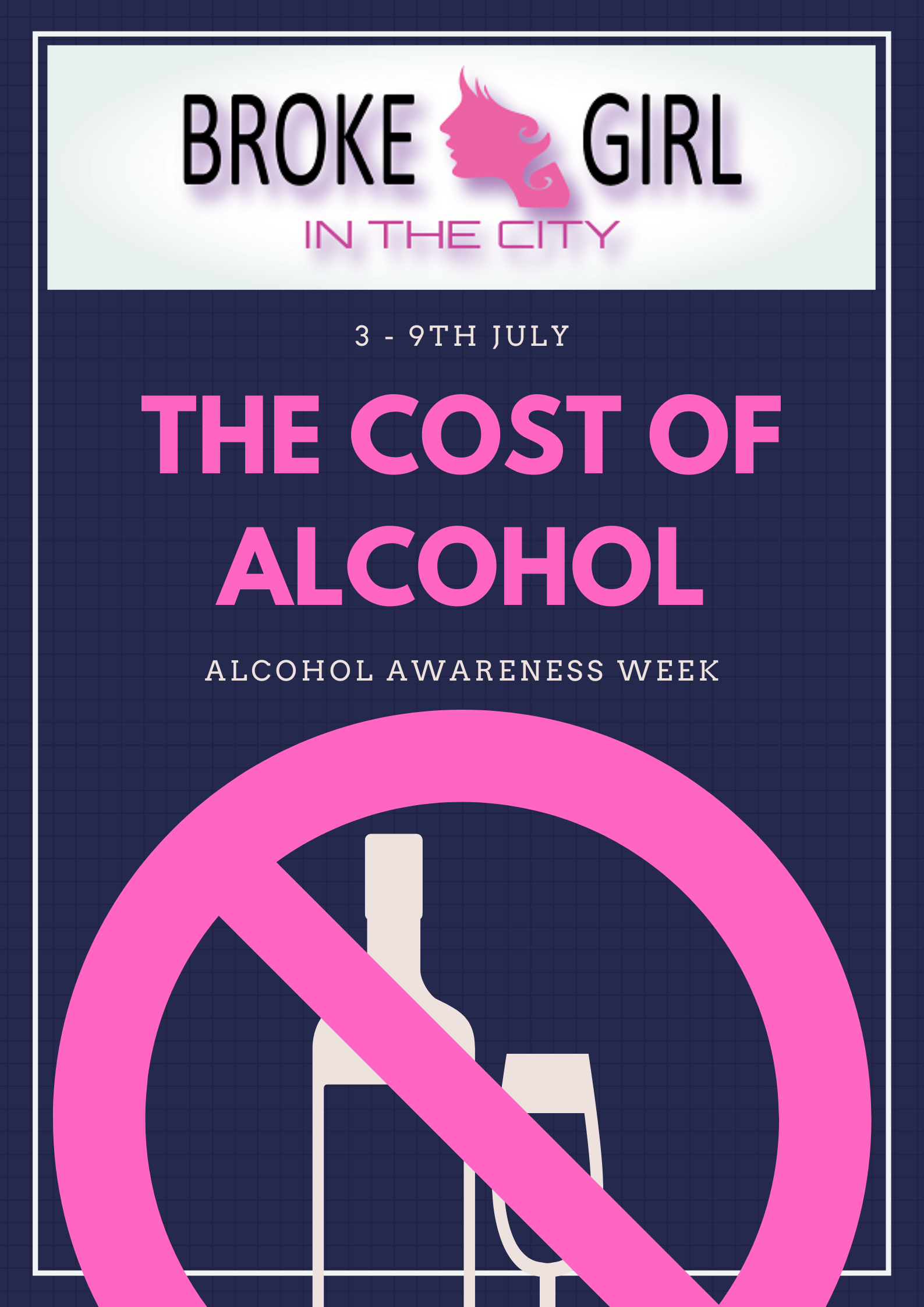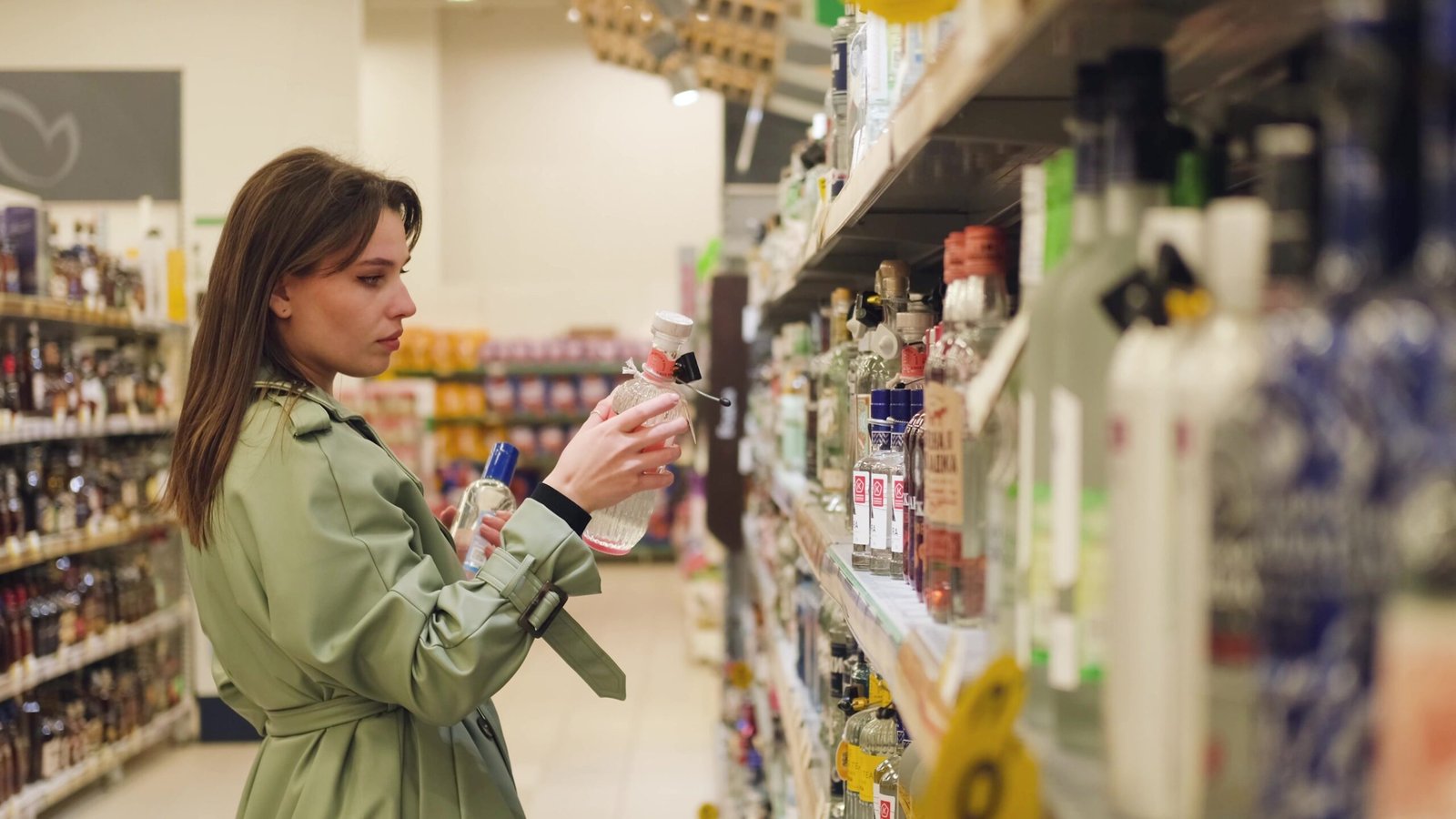
The Cost of Alcohol | Alcohol Awareness Week
It’s Alcohol Awareness Week! This year’s campaign runs from 3-9 July and is managed and hosted by Alcohol Change UK. The theme this year is ‘The Cost of Alcohol‘ – whether this is at the cost of your finances, physical and mental health.
I wanted to cover Alcohol Awareness Week as it affects so many of us, directly or indirectly. If you are reading this article, then it probably does resonate with you in some way.
Eyes wide open: The cost of alcohol.
Alcohol Change UK wants to see Britain living with alcohol but without it causing serious alcohol harm. Their vision is a healthier, happier country, which they believe can be achieved through some changes. Without these changes, it means putting millions of us at risk of serious, avoidable harm.
We need to open our eyes wide open to the real costs of alcohol. I have included the costs that Alcohol Change UK outlines and some information about Alcohol Dependence and addictions, which may help too.
It’s safest not to drink more than 14 units per week, spread over three or more days and with a few days off.
Alcohol Change UK

Let’s start with the costs.
Personal costs
A new survey commissioned by the charity Alcohol Change UK reveals that the average drinker in the UK spends around £62,899 on alcohol over the course of a lifetime. Marking the start of Alcohol Awareness Week, by Alcohol Change UK, on this year’s theme of ‘alcohol and cost’.
The average drinker in the UK spends £62,899 on alcohol in a lifetime.
I am sure that for many people, this lifetime figure will be much higher. With the cost-of-living crisis right now, the cost of alcohol often impacts our ability to budget. Money may be prioritised for alcohol rather than basic necessities, such as bills or food. If you are doing this, then you may need to look at the role alcohol is playing in your life.
The most obvious personal cost of alcohol is our health.
Alcohol damages our bodies in multiple ways. Our heart, liver, brains, skin, liver and cells cause seven forms of cancer.
Most people who die from alcohol are not fully alcohol-dependent. They’re more likely to be heavy drinkers who have no idea quite how dangerous alcohol is.
However, others will die from alcohol dependency, which is a progressive illness. Many people operate as ‘functioning alcoholics. Despite being able to hold down a job and relationship – the cracks are showing, and alcohol has become detrimental to your health. Even when people do realise how harmful alcohol is, they carry on drinking heavily. Most people think that alcohol will not affect them in a dangerous way until it is often too late. However, many people still choose to turn their lives around after battling addiction.
It’s important to look at alcohol’s role in your life.
Alcohol also can have a major effect on our relationships. It may also be a contributing factor to domestic violence, family breakdown, and friendships reliant on alcohol. Or it can be why we are not fully present with our family or friends. If we have been isolating ourselves because we are struggling with our mental health or drinking alone to avoid judgement. Then it’s time to look at how you can change your relationship with alcohol, even if it means having to abstain for a short while or for good.
Another personal cost is time.
Alcohol can leave us with low energy, very poor sleep or insomnia, with us spending more time recovering and less time living. For many people, it can even lead to whole evenings in which we forget what happened. So, it doesn’t just risk shortening our life. It also removes huge chunks of our life.
One of the most common things reported by people who have used alcohol heavily but have taken back control – is how much more time they have.
Susan’s story
Watch Susan’s story on how alcohol nearly cost her everything. By getting the right kind of support, she was finally able to be free of alcohol. (Video Courtesy of Alcohol Change Awareness).
Societal costs
Alcohol is estimated to cost UK society more than £27 billion each year. Alcohol is estimated to cost UK society more than £27 billion each year. Over 1.25m hospital visits a year are alcohol-related. The costs of alcohol health harms are estimated to run into billions each year.
Alcohol harm has an additional negative effect on the workplace. It is one of the leading causes of lost workplace productivity.

What about the benefits?
Alcohol can help us feel a bit tipsy and lower our inhibitions.
Although this might be appealing to some people to combat social anxiety or have a great time! It can also lead to some of us undertaking anti-social, risky or downright embarrassing behaviours. Alcohol’s intrinsic nature can encourage us to ‘overdo it’, making it difficult to keep just a few drinks.
Many of us also enjoy the taste of alcoholic drinks.
In recent years, there has been an explosion of alcohol-free versions of alcoholic drinks. They are almost indistinguishable from alcoholic versions. Switching to alcohol-free drinks gives us the taste, but if you have an alcohol dependence problem. Many people advise you not to drink these while you are in recovery. The fact that they do taste like alcohol can interfere with your ability to stop craving alcohol. Sometimes beers which promote themselves as ‘alcohol-free’ do not always have 0% alcohol, so be careful!

The average drinker spends an estimated £62,899 on alcohol over the course of a lifetime, according to Alcohol Change UK.
The survey revealed that one in five drinkers (19%) considered alcohol to be an “essential” item in their shopping basket. This rises to 39% of drinkers considered to be at increased risk of alcohol harm and 65% at high risk.
One in ten (9%) drinkers said they have prioritised buying alcohol over essential items.
This rises to 19% for those drinking at increasing risk and 25% for those at high risk of alcohol harm. Whereas a quarter (26%) said, they have deliberately bought less alcohol.
Among those who drink, one in seven (15%) said that they have been worried about how much they have been drinking in the last six months. The same proportion (15%) have also been worried about the amount of alcohol someone in their household has been drinking.
Having more opportunities to socialise (32%), work and home pressures (28%), relationship problems (16%), and trying to cope with financial worries (16%) were some of the reasons cited for causing some people to drink more than previously in the past six months.
Those that are now drinking less in the past six months said that they did so for physical and mental health reasons (44%) and due to the cost of living (34%).

Alcohol Change UK is encouraging people to think about the cost of alcohol in all of its forms.
Including health problems, financial worries, relationship breakdown and family difficulties. And to recognise and talk about how your own or someone else’s drinking might affect you and those around you.
Opening up about your drinking can be an important first step in helping you to consider making some changes for a healthier and happier life.
It also can help you save and stop spending money!
Monitor your drinking using an app.
You can now download Try Dry: the Dry January app for free to help you drink more healthily.
- Track your units, calories and money saved when you cut down or cut out alcohol.
- Understand your drinking pattern and track your progress by using the ‘My charts’ feature.
- Record how much money you spend, the units you drink, and the calories you consume over a time period
- Get the full picture with the Units calendar overview
- Monitor your well-being with sleep, energy levels, mood and craving intensity trackers.
- Use the ‘Notes’ section to record your thoughts, feelings, daily reflections, events or learning.
- Use the health quiz to check up on your drinking.
- Keep track of your current and best-ever dry streaks.
- Find extra free tools, tips and resources in the ‘More’ section
- Use the app for Dry January and beyond
Download on Apple | Download on Android

Top Tips for Alcohol Awareness Week:
If you are concerned about your alcohol intake or that of someone else’s. Get help. Talk to your GP, or seek out specialist help from your local services. Check out the NHS website for guidance.
You can also find an AA Meeting to meet other people who are committed to a life of sobriety and find support. Keep an open mind and attend a couple to see if and which ones work for you.
Alcohol dependence isn’t something to be ashamed of. Often alcohol has become an integral part of someone’s lifestyle or is a coping mechanism for an underlying symptom or cause. I love watching Gabor Mate, who talks about addictions being a solution to a problem – whether it’s anxiety, loneliness, or depression. If your alcohol consumption has become a problem or is an addiction, then look at the cost of alcohol to you.
Tips for cutting down / giving up
- Before you start drinking, set a limit on how much you’re going to drink.
- Work out a plan on how you can give up drinking and what your triggers will be
Set a budget
- Allocate a fixed amount of money to spend on alcohol each month. Don’t spend more.
- Record how much you save each day by giving up alcohol for something.
Let them know
- Let your friends and family know you’re cutting down and saving money.
- Tell your close circle you are giving up and ask them to support you.
Take it a day at a time
- Reduce your drinking over time and have drink-free days.
- In AA, their reading is ‘Just for today’. Don’t drink just for today, and then repeat.
Reduce/cut out your drinking
- You can still enjoy a drink, but ask for a regular wine instead of a large one. Your body and finances will thank you for it!
- If you are alcohol dependent, then reducing your drinking may not be an option. You may need to give up altogether but don’t do this alone. Help is out there.
Stay hydrated
- Have a glass of water before you start drinking alcohol, and alternate with alcoholic drinks.
- With so many options out there, you can drink water or choose to drink alternatives now.

Important note on alcohol withdrawal
People who are clinically alcohol dependent can die if they suddenly stop drinking. If you experience fits, shaking hands, sweating, seeing things that are not real, depression, anxiety, or difficulty sleeping after a period of drinking and while sobering up, then you may be clinically alcohol dependent and should NOT suddenly, completely stop drinking. But you can still take control of your drinking. Talk to a GP or your local community alcohol service, who will be able to get help for you to reduce your drinking safely. Find out more.
For example, you may want to contact:
- Drinkline national alcohol helpline on 0300 123 1110
- Alcohol Change UK
- Alcoholics Anonymous helpline on 0800 9177 650
- Al-Anon Family Groups helpline on 0800 0086 811
